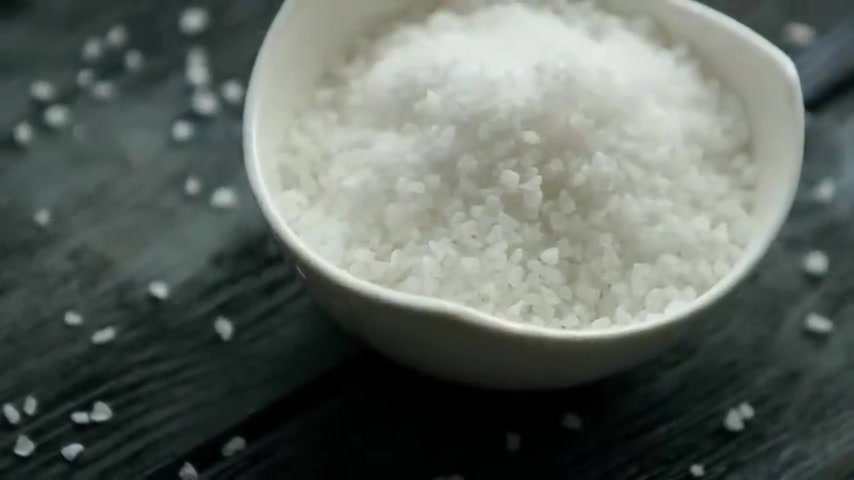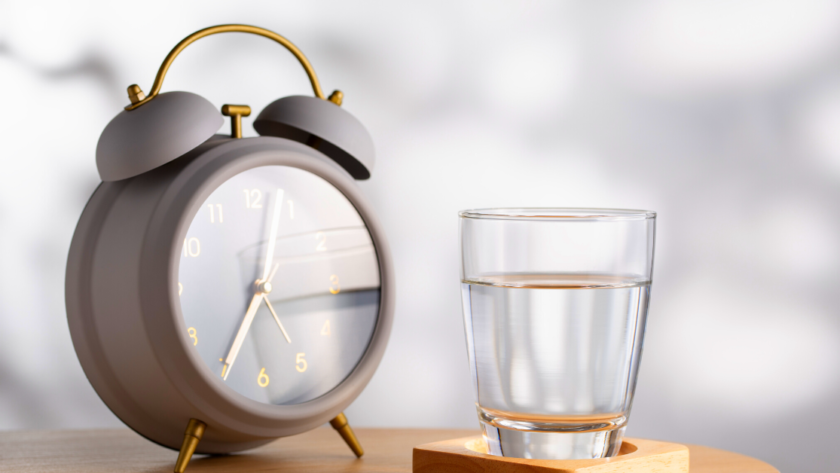Table of Contents
Why can drinking water make you feel weak, especially during fasting?
- The primary cause is sodium deficiency
- Drinking more water dilutes minerals, including sodium
- Fasting combined with increased water intake can exacerbate the problem
How much sodium do we need daily?
- 3.5 to 5 grams of sodium per day
- Equivalent to 1.5 to 2 teaspoons of sea salt
What factors increase sodium requirements?
- Low-carb diets
- High potassium intake
- Stress and cortisol production
- Hot weather, sweating, and exercise
- Certain medications (diuretics, antidepressants)
- Liver conditions (hepatitis, fatty liver, cirrhosis)
- Kidney damage due to diabetes
- Diarrhea or vomiting
How can you test for sodium deficiency?
- Increase salt intake and observe if strength improves
What type of salt is recommended?
- Sea salt is recommended for sodium intake
So let’s dive into the details…
I’ve had some reports from people who feel very weak when they drink too much water, especially when they’re doing fasting, and I want to talk about why that is. It’s basically a deficiency of sodium. A person is going to feel very weak if they don’t consume enough salt, and I recommend sea salt.
- Important points:
- Drinking too much water can lead to sodium deficiency
- Sodium deficiency can cause weakness
- Sea salt is recommended to prevent sodium deficiency
Why Drinking Water Makes You Weak

There are several things that can make you deficient in sodium. Number one, not consuming enough sea salt. Of course, when you’re fasting, you’re usually not consuming anything except water, and the more water you drink, the more you dilute the minerals, including salt and sodium. So, the combination of drinking more water when you’re fasting is a bad combination. You always want to consume sea salt if you’re fasting.
- Important points:
- Not consuming enough sea salt can lead to sodium deficiency
- Fasting can exacerbate sodium deficiency
- Drinking too much water can dilute minerals, including salt and sodium
Sodium Deficiency Causes

Our bodies need minimally three and a half to four to five grams of sodium, that’s roughly between a teaspoon and a half to two teaspoons of sea salt every single day. Also, if you’re doing low carb, you’re going to require more salt than if you’re doing higher amounts of carbohydrate. That’s simply because when you’re in a high carb diet, you’re going to retain more salt than when you’re in a low carb diet.
- Important points:
- The body needs a minimum of 3.5-5g of sodium per day
- Low carb diets require more salt than high carb diets
- High carb diets retain more salt than low carb diets
Other Factors that Can Create a Sodium Deficiency
The other thing that can create a sodium deficiency is consuming large amounts of potassium. So, if you’re doing electrolyte with a lot of potassium and you’re not doing enough sea salt, that can throw you off too, especially if you’re doing all these other things like fasting. Don’t forget about the sea salt!
- Important points:
- Consuming large amounts of potassium can lead to sodium deficiency
- Not consuming enough sea salt can exacerbate sodium deficiency
Stress and Sodium Deficiency

The more stress you go through, the more salt you’re going to need. Because when you’re pumping a lot of cortisol, you lose sodium. Salt is needed as a part of the stress response.
- Important points:
- Stress can lead to sodium deficiency
- Cortisol production can lead to sodium loss
Other Factors that Require More Salt
Now, of course, if it’s hot outside, it’s summer, and you’re sweating and you’re exercising, you’re definitely going to need more salt. And if you’re on a diuretic or an antidepressant, you’re going to need more sodium. If there’s liver damage, if you have hepatitis or you have a fatty liver or you have cirrhosis or you have kidney damage because you’re a diabetic, you’re going to need more sodium.
- Important points:
- Hot weather and exercise require more salt
- Certain medications require more salt
- Liver and kidney damage require more salt
Conclusion
Lastly, you can lose salt if you have diarrhea or you’re vomiting. These are all factors to consider if you’re feeling weak. You could be deficient in sodium. One quick way to find out is just to start consuming more salt and see if you feel stronger.
- Important points:
- Diarrhea and vomiting can lead to sodium loss
- Consuming more salt can help alleviate weakness
Summary
- When you’re fasting, you’re typically not consuming anything except for water. The more water you drink, the more you dilute minerals, including salt and sodium.
- Drinking an excessive amount of water while fasting can be bad. You always want to consume sea salt while fasting. Our bodies need 3.5-5g of sodium a day. That’s roughly 1.5-2 tsp. of sea salt a day.
Causes of a sodium deficiency:
• Not consuming enough sea salt
• A low-carb diet
• Consuming large amounts of potassium
• Stress
• Sweat
• Certain medications (diuretics and antidepressants)
• Liver or kidney problems
• Diarrhea
• Vomiting
One way to find out if you’re deficient is to consume more sea salt and see if you feel stronger.
FAQ
Why do I feel weak while water fasting?
Feeling weak during water fasting is common and can be attributed to several factors:
- Sodium deficiency: Drinking more water dilutes electrolytes, including sodium, which is crucial for maintaining strength and energy.
- Low blood sugar: As your body depletes its glycogen stores, blood sugar levels can drop, causing weakness and fatigue.
- Dehydration: Despite drinking water, your body may still struggle with hydration due to electrolyte imbalances.
- Metabolic adaptation: Your body is adjusting to using fat for fuel instead of glucose, which can temporarily cause weakness.
What happens if you drink water while fasting?
Drinking water during a fast is generally recommended and has several effects:
- Helps maintain hydration
- Supports the body’s detoxification processes
- May reduce hunger pangs
- Assists in flushing out toxins
- Can lead to electrolyte imbalances if consumed in excess without proper mineral supplementation
What happens when you drink water too fast?
Consuming water too quickly during a fast can lead to several issues:
- Electrolyte dilution: Rapid water intake can further dilute already low electrolyte levels.
- Nausea and vomiting: The stomach may become overwhelmed, leading to discomfort.
- Hyponatremia: In extreme cases, drinking too much water too quickly can lead to dangerously low sodium levels.
- Increased urination: The body may expel water more quickly, potentially exacerbating dehydration.
Why should we not drink water fast?
While staying hydrated is important, there are reasons to be cautious about drinking water too quickly or in large quantities during a fast:
- Risk of electrolyte imbalance
- Potential stomach discomfort
- May interfere with the body’s natural hunger and thirst signals
- Can lead to more frequent urination, potentially disrupting sleep or daily activities
It’s generally recommended to sip water slowly throughout the day rather than consuming large amounts quickly.
How much weight will I lose on a 3 day water fast?
Weight loss during a 3-day water fast can vary significantly between individuals, but typically:
- Average weight loss: 2-7 pounds (0.9-3.2 kg)
- Much of this is water weight and will be regained upon resuming normal eating
- Factors affecting weight loss include starting weight, metabolism, and activity level
- Sustainable fat loss is generally minimal in such a short period
Note: Rapid weight loss through extreme measures like water fasting is not recommended for long-term weight management.
Signs to stop water fasting
It’s crucial to listen to your body and discontinue water fasting if you experience:
- Severe weakness or dizziness
- Rapid heart rate or palpitations
- Severe headaches or migraines
- Fainting or loss of consciousness
- Persistent nausea or vomiting
- Signs of dehydration (dark urine, dry mouth)
- Extreme hunger or inability to concentrate
- Any unusual or severe symptoms
Always consult with a healthcare professional before and during extended fasting periods.
What is water fasting?
Water fasting is a type of fasting where you consume only water for a set period, typically ranging from 24 hours to several days. Key points include:
- No calorie intake; only water is allowed
- Often done for health, spiritual, or weight loss reasons
- Can range from intermittent fasting to extended fasts
- Should be approached with caution and preferably under medical supervision
- Not suitable for everyone, especially those with certain health conditions
3 day water fast benefits
A 3-day water fast may offer several potential benefits, though research is ongoing:
- Autophagy (cellular cleanup process) promotion
- Potential improvement in insulin sensitivity
- Temporary reduction in inflammation
- Mental clarity and focus for some individuals
- Possible reset of eating habits and relationship with food
- Short-term weight loss (mostly water weight)
Note: Always consult a healthcare professional before attempting extended fasts.
Water fasting benefits
Water fasting has been associated with various potential benefits:
- Promotes autophagy and cellular repair
- May improve insulin sensitivity and blood sugar control
- Potential reduction in oxidative stress and inflammation
- Possible cardiovascular health improvements
- Can lead to short-term weight loss
- May enhance mental clarity and focus for some
- Potential longevity benefits (based on animal studies)
However, more research is needed to fully understand the long-term effects and safety of water fasting in humans.
30 day water fasting
A 30-day water fast is an extreme form of fasting that carries significant risks:
- Severe electrolyte imbalances
- Muscle loss and weakness
- Potential organ damage
- Severe nutritional deficiencies
- Increased risk of refeeding syndrome upon breaking the fast
Such extended fasts are not recommended without strict medical supervision and are generally considered unsafe for most individuals.
Side effects of intermittent fasting for females
While intermittent fasting can offer benefits, females may experience unique side effects:
- Hormonal imbalances affecting menstrual cycles
- Increased risk of amenorrhea (absence of menstruation)
- Potential fertility issues
- Increased stress hormone production
- Higher risk of nutrient deficiencies, especially iron
- Mood swings and irritability
- Changes in sleep patterns
- Potential exacerbation of eating disorders
Women should approach intermittent fasting cautiously and consult with a healthcare provider, especially if experiencing any adverse effects.
7 day water fasting
A 7-day water fast is a prolonged fasting period that can have significant effects on the body:
- Substantial weight loss (much of it water weight)
- Potential improvements in autophagy and cellular repair
- Possible reduction in inflammation and oxidative stress
- Risk of electrolyte imbalances and nutritional deficiencies
- Potential muscle loss
- Increased risk of side effects like fatigue, dizziness, and headaches
A 7-day water fast should only be attempted under close medical supervision due to the potential risks involved. It’s not suitable for most individuals and can be dangerous if not properly managed.




